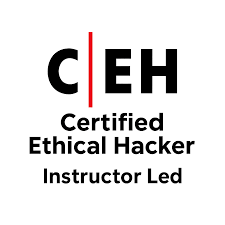Palo Alto Training – Learn Palo Alto Firewalls in 2025

Ethical hacking, also known as penetration testing, involves authorized individuals probing computer systems, networks, or applications to identify and rectify security vulnerabilities before malicious hackers can exploit them. These professionals, termed ethical hackers or white-hat hackers, utilize the same tools and techniques as their malicious counterparts but operate with permission and adhere to legal and […]

Ethical hacking, also known as penetration testing, involves authorized individuals probing computer systems, networks, or applications to identify and rectify security vulnerabilities before malicious hackers can exploit them. These professionals, termed ethical hackers or white-hat hackers, utilize the same tools and techniques as their malicious counterparts but operate with permission and adhere to legal and ethical standards.Toxigon
Importance of Ethical Hacking in Cybersecurity
In today’s digital landscape, organizations face an ever-growing array of cyber threats. Ethical hacking plays a pivotal role in strengthening cybersecurity by:ToxigonDashlane+2Medium+2websecuritypulse.com+2
Key Techniques in Ethical Hacking
Ethical hackers employ various methodologies to assess and improve system security, including:
Legal and Ethical Considerations
Ethical hacking must be conducted within the bounds of the law and adhere to strict ethical guidelines. This includes obtaining explicit permission from system owners before initiating any testing and ensuring that all activities are documented and reported transparently. Adhering to these principles not only protects the ethical hacker but also upholds the integrity of the cybersecurity profession. FreeCodeCampwebsecuritypulse.com
Career Opportunities and Certifications
The demand for skilled ethical hackers is on the rise, with organizations seeking professionals capable of fortifying their defenses against cyber threats. Pursuing certifications can enhance credibility and career prospects in this field. Notable certifications include:
In conclusion, ethical hacking is an indispensable component of modern cybersecurity strategies. By proactively identifying and mitigating vulnerabilities, ethical hackers play a crucial role in protecting organizations from cyber threats, ensuring compliance, and fostering a culture of security awareness.Invortech
Get certified with industry-leading cybersecurity certifications from EC-Council, PECB, Palo Alto Networks, and more.

Learn from world-class instructors Collaborate with top professionals Advanced training...

The CEH is the world's leading cybersecurity certification, recognized by...

Onsite training course Led by an instructor Interactive sessions

Asynchronous, self-study environment Video-streaming format Flexible learning schedule
Adding {{itemName}} to cart
Added {{itemName}} to cart

